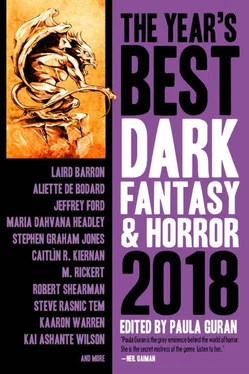“But look at my daughters. They are the true blessing. Magdala wouldn’t be here, and who knows what sort of young women Julia and Amara would have been, raised by their father and hired women.”
“What do you know of hired women?” Mihai said, and he gave Phillip such a look. He led him to the drawing room but the girls weren’t going to miss out. Julia crept into the room next door, the little-used storage space and heard such things as made her sick to the stomach.
“There is a house of whores,” Mihai said, “Whose skin is dyed blue. Glorious. Like the naked bodies taken out of plague houses, a sight I’ve seen and never anything so beautiful.”
Julia wondered, How old is this man? Unless there was a plague more recently in Romania?
“These whores hold the same tinge and even more, as the blue fades it begins to look like bruising. Also beautiful.”
Julia noticed her mother kept them all close and allowed them no time alone. She was ever so protective, but not it seemed as if she offered a barrier between the girls and this charismatic man, as she saw him. The girls were not so inclined.
“You could do worse than that man,” Phillip said afterwards, but what his four ladies said in return burned his ears and made him shrink into his collar.
“Are we going to have to poison you to stop you marrying our girls off to awful men?” Eliza said.
The maid listened in. She always listened.
“He’s not so bad,” Amara said.
“But look at him! Like a monster!”
It was soon after this they traveled for dinner at Mihai’s mansion.
Outside was solid gray brick, with very few windows. “You see how I save money on the window tax? Your father chose his materials well,” Mihai had said, though Phillip had little choice in the matter. Inside, all was gray, muted.
He said, “It will be named for you, Phillip. Your name in brass, over the door.”
Phillip was embarrassed by this. An honest day’s pay for an honest day’s work was all he asked for, and a good life for his girls and for his wife to be happy, because her happiness brought joy to his own life.
“No need for that,” he said.
“One of your daughters, then. Julia, Amara, Magdalena. Which one?” and he rubbed his great beard, eyeing them off. Only Julia understood he was teasing.
“More wine,” Mihai said. “More food.” The girls and their mother fell asleep as the two men finished bottle after bottle.
It was after midnight when Mihai arranged a carriage to take them home. Their father groaned and whimpered all the way, filling them all with irritation. Silly drunk man. He wasn’t amusing at all, just dull and odorous.
It was the last carriage ride the family would take together.
The next morning Phillip did not rise. He was never a lazy man, always up with the dawn, even on the nights he was up well past midnight. But after the amount he drank it wasn’t surprising that he was still not risen by noon.
“Silly fidget,” their mother said. “He’s poisoned himself with wine.”
“Mother!” Julia said. The maid stifled a smile; she was always far too free with ears and eyes, Julia thought and true; it was she who whispered so loud that Mihai came to visit.
“What’s this I hear? A house of women left unattended?” he roared.
“He is wine-ill, nothing else,” Eliza said. “He deserves a small amount of suffering for the noise he made last night.”
The maid heard this as well.
“Real men don’t suffer from the drink, and this is a man who can build a magnificent house. Leave me with him.”
Not knowing why, they did leave, even the maid.
In there, Mihai roused Phillip. He gave him a draught and when the man bent over double in pain he said, “I think that woman’s poisoned you. That wife of yours.”
The maid gave evidence at Eliza’s trial for attempted murder. “Oh yes,” she said, “I heard them talking about poisoning him.”
With their father weak and ill, their mother incarcerated, the girls had no one to watch over them.
Mihai made an arrangement with Phillip. If the three girls went into servitude for him, he would ask for mercy for Eliza using his influence. His wealth. He would ask the authorities not to put her to death. “I won’t work your girls hard,” he said. “Think of it as finishing school.”
The father had never physically recovered, nor mentally. He agreed.
It was not what they imagined. Even in their worst nightmares they couldn’t imagine what Mihai had in store for them.
Mihai’s closest companion was a cruel, weak man called Cyril. He was the mayor of a town far away who never seemed to be at home for his duties.
Cyril and Mihai drank great goblets of wine, but the girls were given crystal glasses of blue water.
“Isn’t it a beautiful hue? Indigo water. A rare thing, rare indeed but fitting for these beautiful tulip flowers I have before me.”
Later, in the lavatory, Amara would scream in terror and the older girls laugh to see how their water had turned blue.
“Look at your lovely ladies,” Cyril said, his eyes glinting. “You’d think they were dolls they are so lovely. Or puppets, perhaps. Dance for us, lovely puppets.”
“Go on,” Mihai said, “Do as he says.”
So the girls drew out their scarves and danced. They brought the only color to the place; there was scant art, much of it dull, and the food served on plain plates. Only the wine goblets shone golden, and the enormous candles brought a warmth and a glow.
“Have them dance on my grave when I’m dead,” Cyril said, and the two men laughed until they fell off their chairs.
Looking back, the girls would see that as the best night of their captivity. The last color they saw. As the sun rose, Mihai said, “And now.”
As he imprisoned down below, in solid dark rooms, his eyelids lifted so his eyes stared dark and hard and Julia understood that he would not listen to reason.
Each girl had a cell to herself. The cells were bare; no bed, no chair, no window, no light. It took them a while to understand they were there to die. They wondered; did their father build these rooms? Didn’t he wonder what they were for? Or did he imagine coal, or wood, or wheat?
Day by day Mihai told them how long they had to live.
“How good I am to you,” he said. “What a gift I give to you. To know the truth.” He said this every day.
He allowed them water. He passed tall thin jars to them through small cracks and while they saw nothing in the pitch dark, they knew this water was blue. He told them so, he said, “Your insides will be such a lovely color.”
Julia thought, this is because of the whores . He wants us blue like them. He couldn’t see them in the dark; it was their corpses he wanted to see.
They couldn’t hear each other. They could barely hear themselves; the walls were dense, almost absorbent, drawing in all sound and most of the air.
So hungry. So very, very hungry. No moss or mold on the walls, no rodents, so day by day they weakened. Amara was the bitterest; she alone had believed he would marry her and she would live a life of adventure. She felt such fury at what he stole from her. Not just her own moments of joy, love, success, but those of all her future generations. He stole her name, her family’s future, he ended her line, and this made her exceeding bitter.
Mihai fattened. Larger and larger so quickly his servants thought he was a devil and ran for their lives. He grew so large he could no longer walk down the stairs, and so he did not know that those three girls died together, within an hour of each other.
They oozed through the gray brick walls, waiting till they are all three dead and spirit.
They found him, fat, repulsive, sunk deep into his bed. He wept. “Oh, glory. O great glory of god, they are beautiful. Ah, great day.”
Читать дальше












